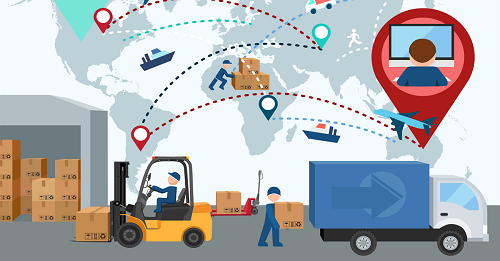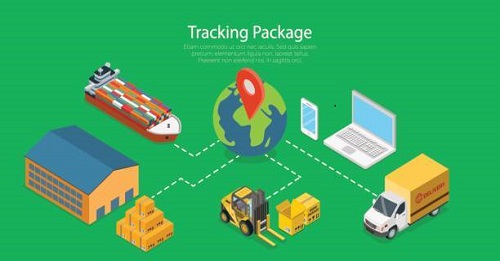In today’s fast-paced global economy, transportation is at the heart of international trade, logistics, and business operations. Having a digital presence has become essential for transport services. A professional website serves as the gateway for transport companies to expand their services, build credibility, and connect with clients worldwide.
Transport services face the challenge of competing in a crowded and complex marketplace. Many businesses now look international solutions that can streamline supply chains, reduce costs, and ensure faster, more efficient deliveries. A transport company’s website acts as a 24/7 hub for attracting potential clients, providing them with information about services, and building relationships that lead to international contracts.
This article explores the top 5 reasons why every transport service needs a website for international success. Focusing on how a strong online presence can help companies grow, reach global clients, and stand out in the highly competitive transport industry.
Table of Contents
Reason 1: Showcasing Services to an International Audience
The first reason transport services need a website is its ability to showcase services to an international audience. Transport companies operate in a global market, and international clients want to find services that meet their needs across borders.
Showcasing transport services to an international audience is crucial for companies aiming to expand their reach and develop a global presence. By creating a website, highlighting wide range of service offerings, and presenting case studies or testimonials from clients in various regions, transport companies can build credibility and attract clients worldwide. Utilizing digital marketing strategies like SEO, targeted social media campaigns, and partnerships with international logistics platforms further improves visibility. Effectively showcasing services to a global audience demonstrates the company’s capability, reliability, and adaptability, helping to attract international clients and drive business growth.
How Transport Services Can Use a Website to Expand Their Offerings
Transport companies can use their website to effectively showcase their full range of services to potential clients from all over the world. Whether its freight shipping, logistics management, air or sea cargo, or last-mile delivery. A website allows businesses to display the full spectrum of services offered. Companies can include detailed service descriptions, pricing models (where applicable), and any specialized services that respond to different regions.
For example, a transport service based in the U.S. might offer domestic shipping but could also respond to international clients with air freight options to Europe and Asia. By displaying these offerings clearly on a website, the company can attract international business from customers who are specifically looking for solutions that span multiple countries or continents.
Moreover, a website offers the flexibility to include interactive maps, global shipping routes, and information on customs regulations. Which are essential for international transport services. This kind of visual content makes it easier for clients from around the world to understand the scope and reach of a company’s services. An easy-to-navigate website also improves customer experience by providing clear pathways to the services they need, reducing friction in the decision-making process.

Benefits of Clear Service Listings for International Clients
Clear service listings are essential for transport services responding to international clients, as they provide transparency and build trust. When services are clearly listed and explained, clients from different regions can easily understand what’s offered. Including key details like pricing, delivery options, and handling procedures for specific goods. This clarity helps international clients make informed decisions and reduces the prospect of misunderstandings. By presenting a well-organized, comprehensive service menu, transport companies can improve their credibility, improve client satisfaction, and attract a global audience looking for reliable and straightforward logistics solutions.
- Increased Visibility: A website provides transport services with the opportunity to reach a larger audience. Showcasing their capabilities to international clients who may not have been aware of them before.
- Targeted Marketing: By offering specific services for different regions, transport companies can target their marketing efforts to international businesses looking for specialized solutions.
- Better Conversion Rates: When clients can easily access the information they need, whether that’s shipping rates, delivery times, or service options. They are more likely to trust the company and proceed with booking their services.
Reason 2: Building Trust and Credibility with Potential Clients
One of the most significant barriers for transport companies when dealing with international clients is developing trust. Potential clients often hesitate to work with companies they’ve never heard of, especially when it involves the logistics of moving goods across borders.
Building trust and credibility with potential clients is essential in the transport services industry. Where reliability and accountability are top priorities. To develop a trustworthy reputation, companies should highlight their certifications, years of experience, and safety standards on their website and marketing materials. Sharing client testimonials, case studies, and showcasing a transparent track record of successful deliveries can also reassure clients of the company’s dependability. Engaging in consistent communication, providing real-time tracking, and offering responsive customer support further improve client confidence. Ultimately helping to build long-term relationships and a strong reputation in the transport industry.
How Transport Services Can Build Trust Online
A well-designed website can go a long way in building trust with international clients. First impressions matter, and a professional website that conveys reliability, transparency, and industry knowledge can instill confidence in customers. Transport companies can use their websites to showcase certifications, accreditations, and partnerships with recognized international organizations. Displaying these credentials assures clients that the company meets international standards and operates ethically.
Another way to build trust is by featuring customer testimonials and case studies on the website. Positive feedback from other international clients, particularly those from similar industries or regions, can be convincing in showing potential clients that the transport service has a proven track record of delivering results. Additionally, case studies highlighting successful international projects or long-term contracts with global companies can demonstrate the company’s ability to handle complex logistics challenges across borders.
Transparency Builds Credibility
Transparency is another vital factor that transport companies can highlight on their website. Clients looking for international transport solutions want to know the details of how their goods will be handled, shipped, and delivered. A website can offer clear information on processes, including customs documentation, estimated delivery times, and potential delays. Being transparent about rates, pricing models, and fees associated with international shipping will also encourage a sense of trust and reduce concerns about hidden costs.
Reason 3: Efficient Client Communication and Support

Communication is a key factor in the success of any international business relationship, and transport services are no exception. International clients may have different time zones, languages, and communication preferences. A well-structured website helps transport companies provide 24/7 access to information and streamlined communication options, making it easier to connect with global clients.
Efficient client communication and support are crucial for success in transport services. Where timely updates and customer trust are key. By offering responsive customer support channels, such as live chat, email, and phone, transport companies can keep clients informed about shipment status, address inquiries promptly, and resolve issues effectively. Regular updates on delivery progress and estimated arrival times provide transparency, helping clients feel secure about their shipments. Providing exceptional communication and support not only improves the customer experience. But also strengthens relationships, encouraging loyalty and positive word-of-mouth in the competitive transport services industry.
Using Websites to Improve Client Communication
Transport services can improve their client communication by integrating live chat functionality, contact forms, or email support options directly on their website. This makes it easier for potential clients to get in touch, ask questions, and receive quick responses. Some transport companies also provide customer service portals where clients can track shipments, request quotes, or manage logistics bookings at their convenience.
For international clients, offering multiple language options on the website can further improve accessibility. A multilingual website allows customers from different regions to interact with the company in their preferred language. Which can be particularly important when dealing with complex transport terms and regulations.
Streamlined Client Support for Global Operations
A website also enables transport companies to provide self-service options, such as FAQ sections or knowledge bases. Where clients can find answers to common questions. This feature is valuable for international clients who may need to check on shipping progress or understand the complexities of customs clearance without waiting for a response.
Reason 4: Using SEO and Content for Global Reach
SEO (Search Engine Optimization) is one of the most effective ways to attract international clients to a transport service website. A well-optimized website can rank high on search engine results pages, ensuring that businesses are found by international clients searching for transportation solutions.
Using SEO and content strategies can significantly expand the global reach of transport services. By optimizing for relevant keywords, such as “international freight,” “global logistics,” and location-based terms, companies can attract a broader audience searching for reliable transport solutions. High-quality, informative content, like blog posts and guides on customs procedures, shipping regulations, and logistics tips, can position a transport service provider as an authority in the industry. Combined with targeted SEO, this content helps improve search rankings and visibility, drawing international clients who are looking trustworthy partners for their shipping and transport needs.
How SEO Can Help Transport Service Company to Reach Global Clients
SEO strategies such as keyword optimization, content marketing, and link-building can help transport companies rank for search terms related to international transport services. By incorporating location-based keywords and phrases into the website’s content, transport companies can increase their chances of ranking for searches in various regions.
For example, a transport service offering freight forwarding between Europe and North America could target keywords like “international freight shipping” or “air cargo services Europe to USA.” This ensures that when a potential international client searches for these services, the transport company’s website will appear at the top of the results.

Content Marketing: A Tool for Attracting International Clients
Attracting international business clients is mostly dependent on content marketing is just as important as SEO. Transport services can create blog posts, whitepapers, and industry insights on topics relevant to international shipping and logistics. Offering valuable content such as shipping guides, market trends, or case studies can position a transport service as an authority in the industry.
Content marketing also provides an opportunity to target long-tail keywords. Which are more specific search terms that international clients might use. For example, writing blog articles on topics like “Customs Regulations in Asia for Freight Shipments” or “How to Ship Goods from Europe to Africa” can attract businesses in those regions looking for expert advice on transport services.
Reason 5: Facilitating Cross-Border Transactions
One of the primary challenges when dealing with international clients is handling cross-border transactions smoothly. A website can streamline this process by offering secure and easy-to-use online payment systems, booking forms, and quote requests.
Facilitating cross-border transactions is a crucial factor of transport services, enabling businesses to operate seamlessly across international boundaries. Transport companies that specialize in cross-border logistics offer expertise in customs clearance, regulatory compliance, and documentation, reducing potential delays and ensuring smooth transactions. By providing reliable end-to-end solutions, from handling paperwork to managing tariffs and taxes. These services help clients navigate the complexities of international trade. This support is essential for businesses looking to expand globally, as it minimizes risks and improves efficiency in reaching new markets.
How Transport Services Can Simplify Global Transactions
By integrating secure payment gateways that support multiple currencies and international transaction methods (e.g., credit cards, PayPal, bank transfers), transport companies can ensure smooth transactions with clients worldwide. Offering an easy-to-navigate booking system that allows international clients to get real-time quotes based on their location and needs can also improve conversion rates.
For example, a transport service could set up a system where international clients can instantly receive a customized quote for their shipment based on factors such as destination, package size, and preferred delivery timeline. Clients can then book and pay for services directly on the website. Simplifying the process and eliminating the need for lengthy email correspondence or phone calls.
Payment Security for Global Clients
Security is a significant concern for international clients when conducting online transactions. By using reputable payment processors and ensuring that the website is SSL-certified, transport services can reassure clients that their financial information is protected. Secure payment options can help to build trust and encourage more international clients to choose a transport service.
FAQs
1. How does having a website help transport services attract international clients?
A website allows transport services to showcase their offerings to a global audience. Providing potential international clients with essential information about services, rates, and shipping options. It also enables easy access to booking, communication, and real-time updates. Which are critical for international business success.
2. Why is trust important for international transport clients, and how can a website help build it?
International clients want assurance that their shipments will be handled efficiently and securely, and a website offers the opportunity to display credentials, testimonials, and successful case studies. Transparent information about services and pricing on the website helps build credibility and trust with global clients.
3. How can transport services use their website to improve client communication?
Websites can feature live chat, support forms, and customer service portals, providing a seamless communication experience for international clients across different time zones. This allows clients to receive quick responses and stay updated on their shipments in real-time.
4. What role does SEO play in attracting international business for transport services?
Optimizing a website for search engines (SEO) ensures that transport services appear in search results when international clients search for related services. By targeting location-based and industry-specific keywords, transport companies can drive global traffic to their website and expand their international client base.
5. How does a website simplify cross-border transactions for international clients?
A well-designed website can integrate secure payment gateways, offer currency conversions, and provide clear pricing, making it easier for clients from different countries to complete transactions. This eliminates the barriers that often come with international payments and encourage a smooth customer experience.
Conclusion:
Transport services that want to expand internationally must accept digital tools that make it easier to connect with clients, showcase their services, and streamline their operations. A professional website is an invaluable asset that offers the opportunity to reach global audiences, build trust, communicate efficiently, and manage cross-border transactions effectively.
By using the power of a website, transport companies can build a global presence, gain credibility, and attract international business clients. Positioning themselves for success in the increasingly competitive and interconnected world of international transport.
If you enjoyed this article about transport services, share your thoughts in the comments below! Please visit www.uniqueincs.com for more valuable content and claim your free e-book. Plus, explore discounted Digital Marketing Products to boost your business!
Improve your digital presence with an innovative website design that seamlessly integrates style and utility. Connect with www.uniquewebonline.com using the most current trends and technologies to create visually pleasing and user-centric websites customized to increase your brand. Always prepared to captivate your audience and make a lasting impression, Unique Web Online invites you to create a digital experience that distinguishes you. Explore our portfolio and get started on the path to a striking, responsive, and effective website today.
